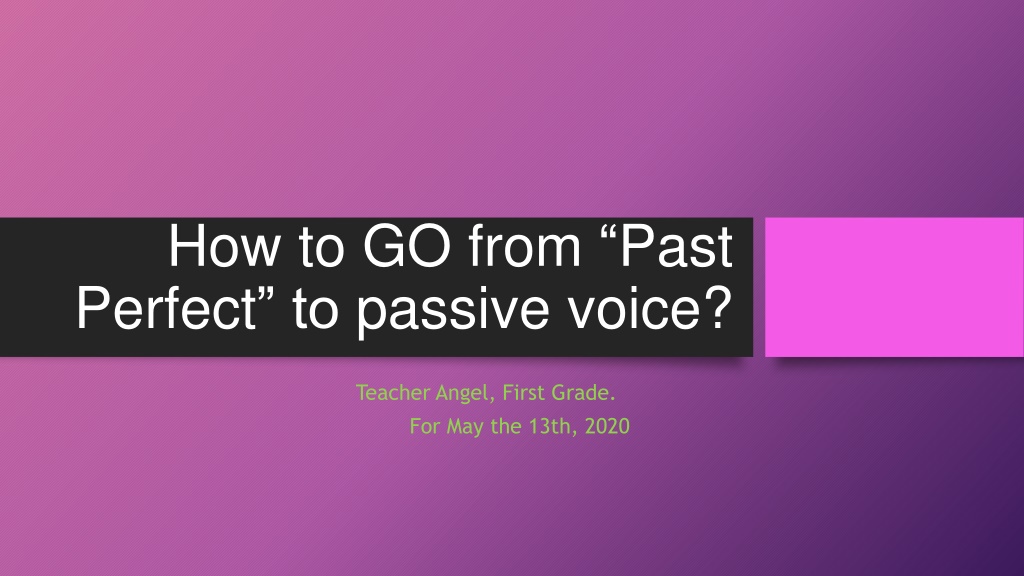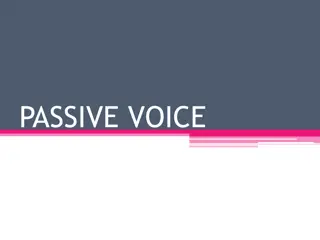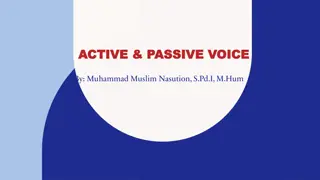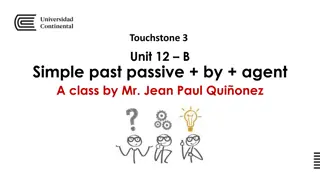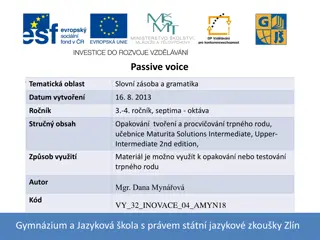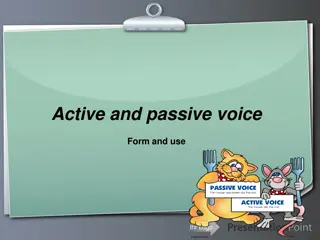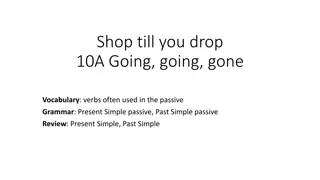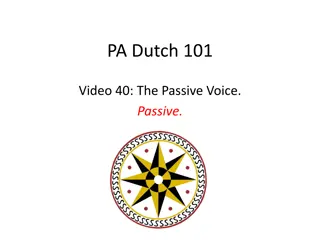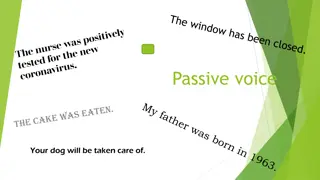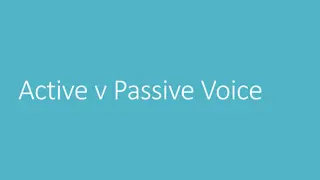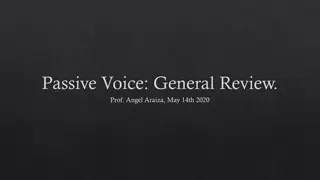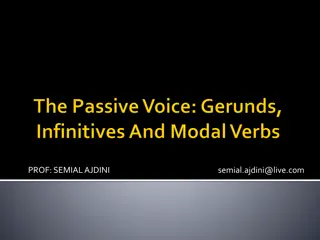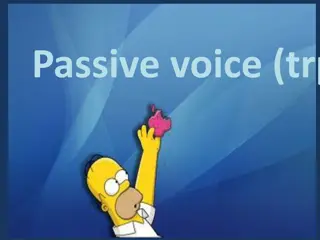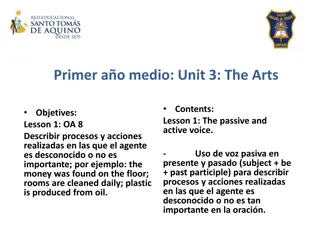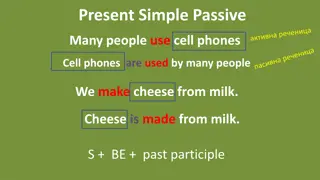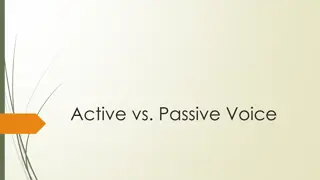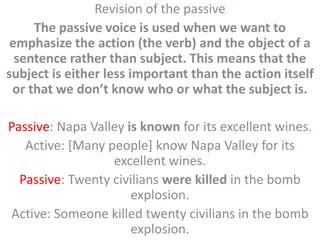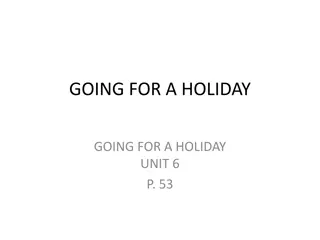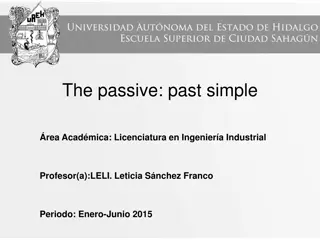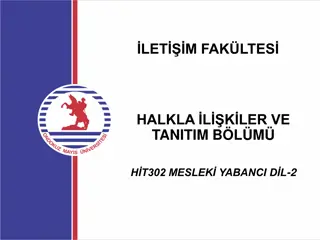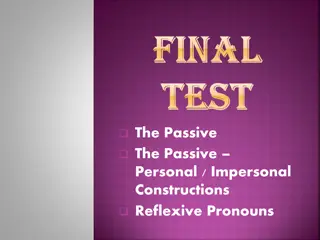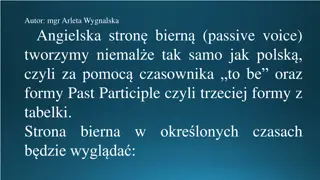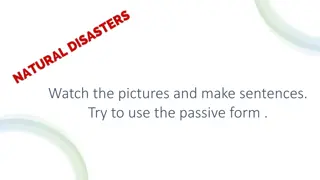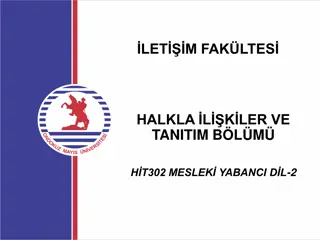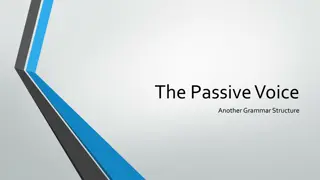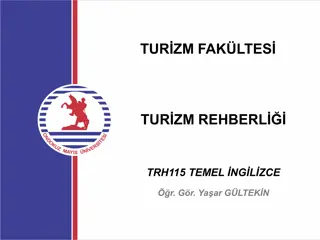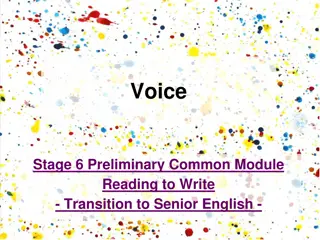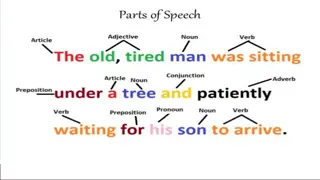Transforming Sentences from Past Perfect to Passive Voice
Learn how to convert sentences from the Past Perfect tense to Passive Voice with clear examples and a step-by-step guide. Understand the formula and rules for changing active voice sentences to passive voice sentences in English grammar. Explore how singular and plural subjects affect the transformation process, along with tips for negative and interrogative forms.
Uploaded on Oct 05, 2024 | 0 Views
Download Presentation

Please find below an Image/Link to download the presentation.
The content on the website is provided AS IS for your information and personal use only. It may not be sold, licensed, or shared on other websites without obtaining consent from the author. Download presentation by click this link. If you encounter any issues during the download, it is possible that the publisher has removed the file from their server.
E N D
Presentation Transcript
How to GO from Past Perfect to passive voice? Teacher Angel, First Grade. For May the 13th, 2020
If you remember Past Perfect is a cyclical time that took an action from the past that was important in another point of the past, before, at the same time or after: Examples: I had taken some medicine before the visit. The students had flown to Bahamas after the Huricane. Trevor had fed the animals in the pen before 7 a.m. Sulleyman had finished the quiz at the same time that Bob.
To change to Passive: For example: Corina had eaten sea food before breakfast. Becomes: Seafood had been eaten by Corina before breakfast . We need to identify : The Subject, + Verb to have (had) + Verb in Past Participle and Object. Sheyla and Sue had sent the messages after 10:00 a.m. Becomes: The messages had been sent by Sheyla and Sue adter 10:00 a.m.
The formula ACTIVE VOICE Subject + had + Verb (Past Participle) + Object PASSIVE VOICE Object + had BEEN + Verb (Past Participle) by Subject.
With a Singular SUBJECT: Singular subject, Singular Object: Person had done a thing. A thing had been done by person. Ex: Carlos had gotten a new job. - A new job had been gotten by Carlos. Singular Subject, Plural Objects: Person had done Things Things had been done by person. Ex: James and Serge had done exercise. Exercise had been done by James and Serge.
With plural SUBJECTS: Plural Subjects, Singular Object: People had done A thing. A thing had been done by People. Ex: The ducks had stolen a piece of bread. - A piece of bread had been stolen by the ducks. Plural Subjects, Plural Objects: People had done things. Things had been done by People. Ex: The riders had ridden the horses. - The horses had been ridden by the riders.
In Negative Form: The bear hadn t seen the honeycomb. Becomes The honeycomb hadn t been seen by the bear. Rafael and Jack hadn t remembered the incident. Becomes: The incident had not been remembered by Rafael and Jack.
In Interrogative Form: Had Miko bought the base guitar? Becomes: had the base guitar been bought by Miko? had the nurses had a party? Becomes: had a party been had by the nurses?
If you had questions: Remember to send them to alzate.profr.angel@gmail.com and I ll answer as soon as possible.
